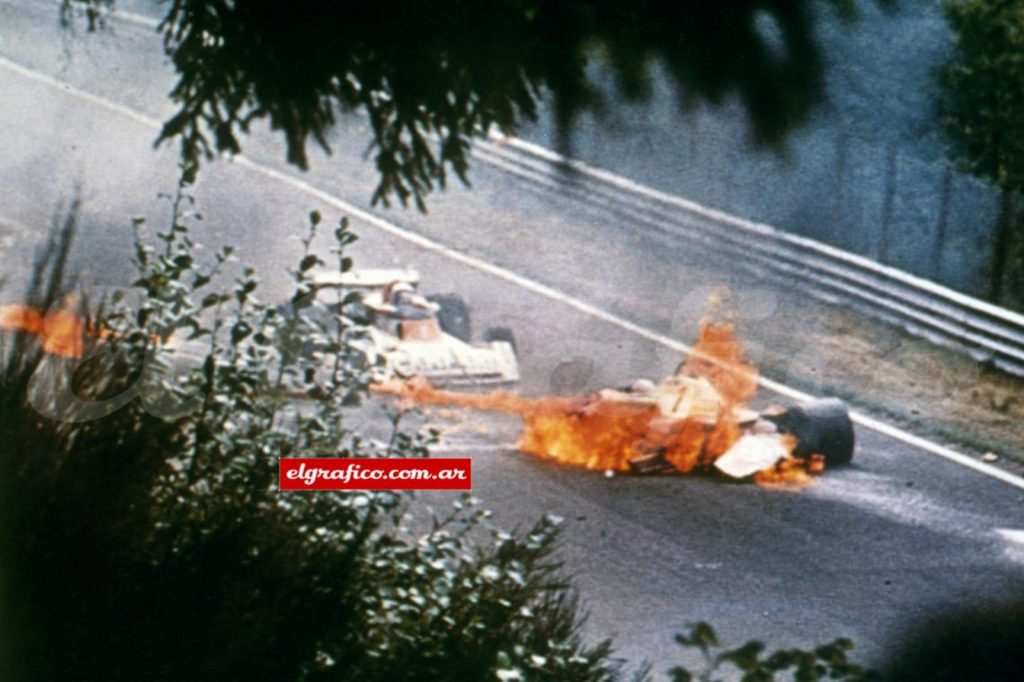Formula 1 Legend, Niki Lauda, has Died at 70
It’s a sad day for Formula 1 fans and petrolheads alike, as in the early hours of this morning it was announced that the legendary Formula 1 driver, Niki Lauda, had died at 70 years of age due to complications believed to be linked to kidney failure. The Formula 1 legend had suffered from chronic lung and kidney problems since his near-fatal crash at the Nurburgring in 1976, in which he sustained disfiguring burns to his face, as well as inhaling hot, poisonous fumes from the burning racecar he was trapped in.
What made Lauda a legend was not merely that he survived, but that he returned to the driver’s seat of his Ferrari just six weeks after the accident, still battling the burns he had incurred that day and only missing out on two races. Lauda, who had been the season’s points leader at that point in the season and was defending champion, had called for a boycott of the race that weekend due to numerous concerns over driver safety and forecast inclement weather. But the driver’s voted against the boycott – even if just by one vote – and the race tragically went ahead.

Moments after Lauda’s horrific 1976 crash, still trapped inside his burning Ferrari. 
Rescue teams work feverishly to extract Lauda from his charred and mangled racecar. 
September 8th, 1976 – Niki Lauda announces his return to racing just six weeks after his horrific accident.
After his return to racing, the Austrian managed to hold onto his title hopes and led the championship by 3 points ahead of the final race, the Japanese Grand Prix. It was his long-time rival, James Hunt, who lay just 3 points adrift of Lauda at the start of the final race, but after two laps in torrential rain, Lauda retired, later stating that he felt it unsafe to continue racing in such conditions. Hunt won the Formula 1 Driver’s Championship that season. Lauda returned in 1977 amidst a strained relationship with Ferrari and picked up his second championship title. Lauda quit Ferrari at the end of the 1977 race season.
He spent two embattled years at Brabham-Alfa Romeo under controversial F1 personality, Bernie Ecclestone, but the results were largely unimpressive, and after two seasons with the team Lauda retired from Formula racing, as he had no further desire to “drive around in circles”, and instead turned his eye to another passion of his, and started charter airline, Lauda Air. This would be the first of two airlines Lauda would be involved in.
Niki Lauda leads from famous rival, James Hunt.
His retirement from Formula 1 didn’t last long, however, as in 1982, the Austrian signed for McLaren, with whom he went on to race for a further four seasons. He went on to win his third F1 Driver’s Championship title by half a point in 1984 over teammate, Alain Prost, with half points being awarded for a shortened Monaco Grand Prix. The car Lauda piloted, the McLaren MP4/2 still holds the record for the chassis which has taken the most wins in the series’ history. After the 1985 season, Lauda retired for the second, and final time, as a Formula 1 driver.

Lauda in 1982 at the Dutch Grand Prix. 
Niki Lauda in the famous McLaren MP4/2.
His involvement, however, continued in the sport, and he acted as an advisor for Ferrari, as team principal for Jaguar early in the new millennium, and most recently, he occupied the position of Non-Executive Chairman for the Mercedes-Benz team, a position from which he held enough influence to lure four-time champion, Lewis Hamilton, to join the team.
Lauda was an outspoken personality in the sport, often criticising decisions made by the FIA and Formula 1 management. Interestingly, despite the Lauda-led protests and boycotts for safety reasons, Lauda has been one of those most vocally against the halo technology now employed on Formula 1 cars. Lauda was a firm believer that there had to be danger in order for F1 to hold any allure, and making the sport “too safe” was robbing it of the excitement it needed.
Lauda also criticised the manner in which all the drivers are too nice, too polite to each other. He felt the sport needed rivalries and personalities. According to Lauda, “people want to see real men who make mistakes, take risks, and say things they shouldn’t.”
Lauda’s legendary status went well beyond the driver’s seat of a Formula 1 car, he was a true legend of the sport, and his outspoken nature often mirrored the thoughts of spectators and pundits around the globe.
But the effects of Lauda’s 1976 accident would be long-lasting, and he notoriously suffered from numerous lung and kidney problems. He received two kidney transplants, one in 1997 from his brother, and a second in 2005 from his second wife. In August of 2018, Lauda underwent a lung transplant in Austria – the lasting effects of those hot fumes resulting in irreparable damage.
Lauda alongside Daniel Bruhl, who played the famous driver in the 2013 film, Rush, which chronicled the rivalry between Niki Lauda and James Hunt, and Lauda’s incredible return to racing after his accident in 1976.
This year, however, Lauda’s health deteriorated, and on Monday, May 20, 2019, Lauda peacefully passed away in the company of his family in the city of his birth, Vienna, Austria.
A statement from his family after his passing paid tribute to “his unique achievements as an athlete and entrepreneur” and said “his tireless zest for action, his straightforwardness and his courage remain. A role model and a benchmark for all of us, he was a loving and caring husband, father and grandfather away from the public, and he will be missed.”
Andreas Nikolaus “Niki” Lauda, the giant of motor racing, is survived by three sons, a daughter, and his wife Birgit.







